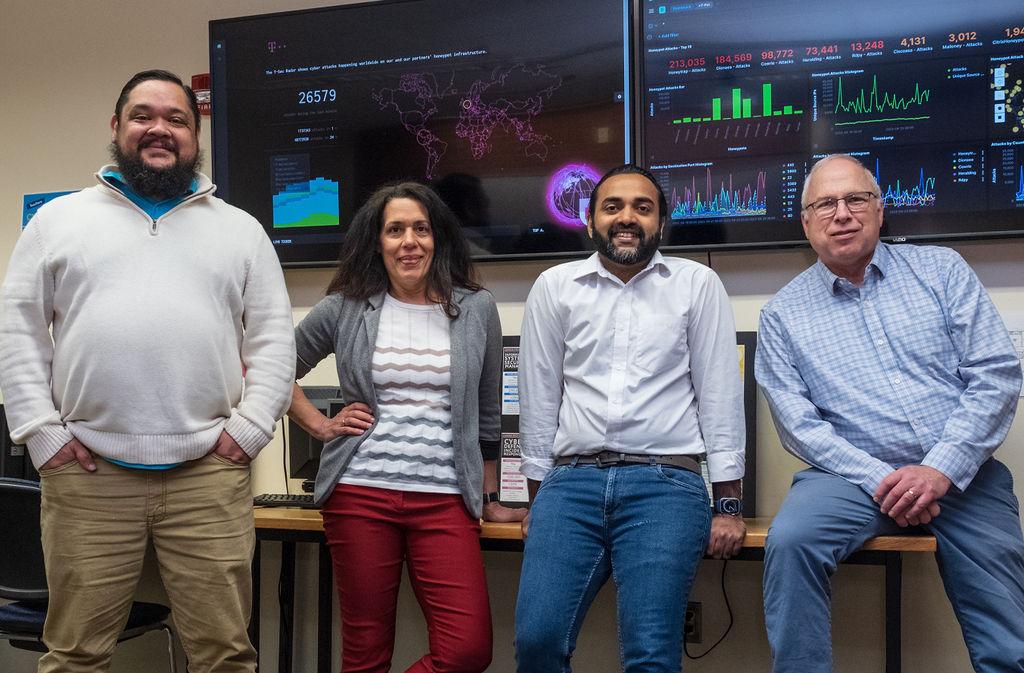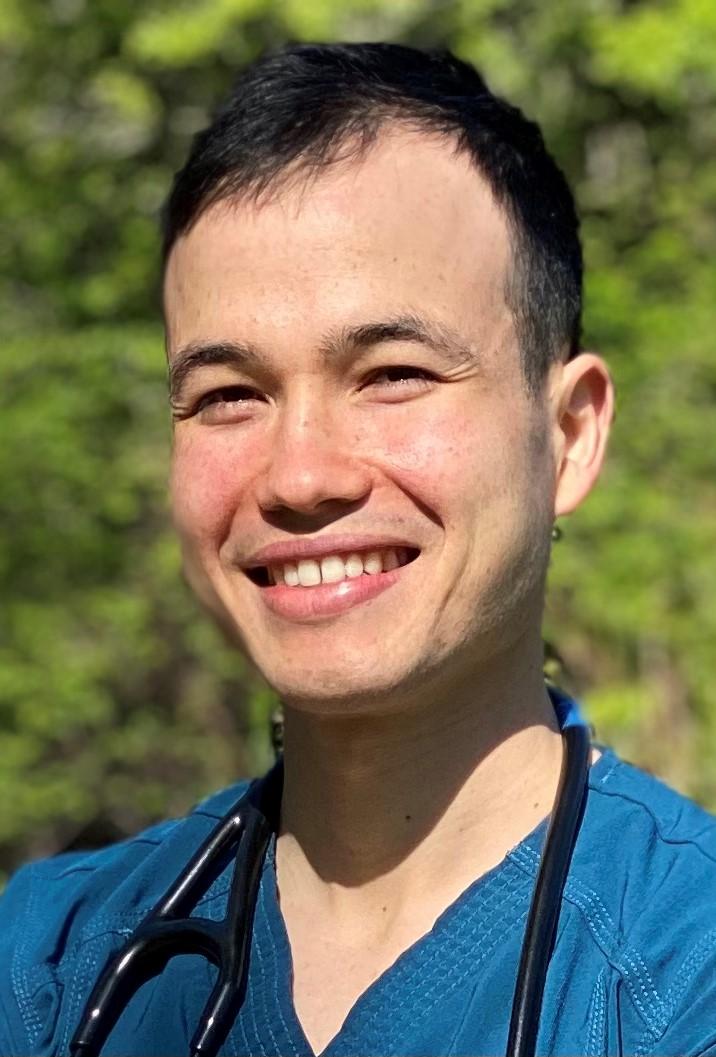Increasing Washington Impact
Preparing more students to become cybersecurity professionals
Students from Western’s Cybersecurity Program are learning how to prevent cyber crime by attracting the attention of would-be criminals.
Within the safety of the program’s Cyber Range, they’ve built honey pots, attractive targets designed to lure lawbreakers into sharing their hacking secrets—which the students can then learn from and use to prevent real attacks on more vulnerable assets.
The Cybersecurity Program, based at the WWU Center at Olympic College Poulsbo, recently received funding from the Washington State Legislature for the Cyber Range to boost collaboration with cybersecurity programs at colleges and universities throughout Washington.
Western’s Cyber Range is one of the few educational cyber ranges in the nation, and the honeypot project is used by instructors throughout the state to give students a better understanding of what a real cyber-attack could look like.
WWU students are already putting their cybersecurity knowledge to work on capstone projects with use cases from the U.S. Navy’s Undersea Warfare Center in Keyport and elsewhere.
They’re also helping small government agencies identify cyberattacks: Cybersecurity students have helped prevent the installation of ransomware, spotted phishing attempts, identified unprotected systems on networks and prevented other nefarious or hazardous activities.

Cybersecurity team: Cloud Administrator Paul Haithcock, Academic Liaison Angela Henderson, Cyber Range Director Vipul Kumar, and Cybersecurity Program Director Erik Fretheim.
From Window Magazine
Sweetening the Pot: If you want to catch a crook, sometimes you have to think like one—just ask Western’s cybersecurity students.
We Will Measure Our Success by:
Degrees Awarded
| Washington Impact | 2020-21 | 2021-22 | Target 2024-25 |
|---|---|---|---|
| Total | 3,824 | 3,685 | 4,200-4,500 |
| Graduate | 298 | 324 | 350-375 |
| State's High Need Areas | 1,294 | 1,237 | 1,450-1,500 |
Enrollment
| Washington Impact | 2020-21 | 2021-22 |
Target |
|---|---|---|---|
| Students of Color | 28.1% | 28.7% | 30-35% |
| Locations Outside Western's Main Campus |
5.4% | 5.5% | 8-10% |
Meet WWU's first Doctors of Education in Education Leadership
Western's first graduating class of educational doctorates.
Western’s first class of Doctors of Education graduated in June 2023, with 11 completing the terminal degree program in education leadership.
The program serves superintendents and other school district leaders. Western's first graduates included four superintendents: Oak Harbor’s Michelle Kuss-Cybula, ’14, Muckleshoot Tribal Schools’ John Lombardi, ’94 and ’17, Mount Baker’s Mary Sewright, ’14, and La Conner’s Will Nelson, who spoke at commencement. Other graduates are district leaders in Snohomish, Yakima, Mukilteo, Puyallup, Lake Stevens, Enumclaw and Abbotsford, B.C.
Woodring College of Education recruited into the first cohort students who had already completed their superintendent credentials at Western, so they were able to complete the program in two years instead of four. The next group of Ed.D. students is expected to graduate in June 2024, and recruitment is under way for the next student cohorts in Washington state and British Columbia.
Kai Rapaport: public health nurse first-responder
Nursing graduate and 2023 Presidential Scholar Kainui Rapaport is a public health nurse with Whatcom County’s new Alternative Response Team, providing first-response assistance to people in crisis.
Rapaport, who completed his degree this summer, joins a behavioral health specialist on 911 calls for non-violent people needing immediate mental health assistance.
Whatcom County Health and Community Services launched the Alternative Response Team in early 2022, joining communities across the country developing compassionate, unarmed response to non-violent 911 calls for mental health assistance and reducing demand on law enforcement and medical first responders.
He hopes to return to Western for a master’s in nursing and eventually become a mental health nurse practitioner and run a street medicine clinic.

Kainui Rapaport
A beautiful, Earth-friendly relationship
Upwell Cosmetics wants to change the cosmetics industry, with the help of research from Western.
Based in Woods Hole, Massachusetts, Upwell has licensed a method of making natural wax made from sea algae, developed by WWU Chemistry Professor Greg O’Neil and Woods Hole Oceanographic Institution scientist Chris Reddy.
The wax, the first of its kind in the cosmetics industry, could replace petroleum-based ingredients in a variety of products like shampoo, lotion, lipstick and sunscreen.
